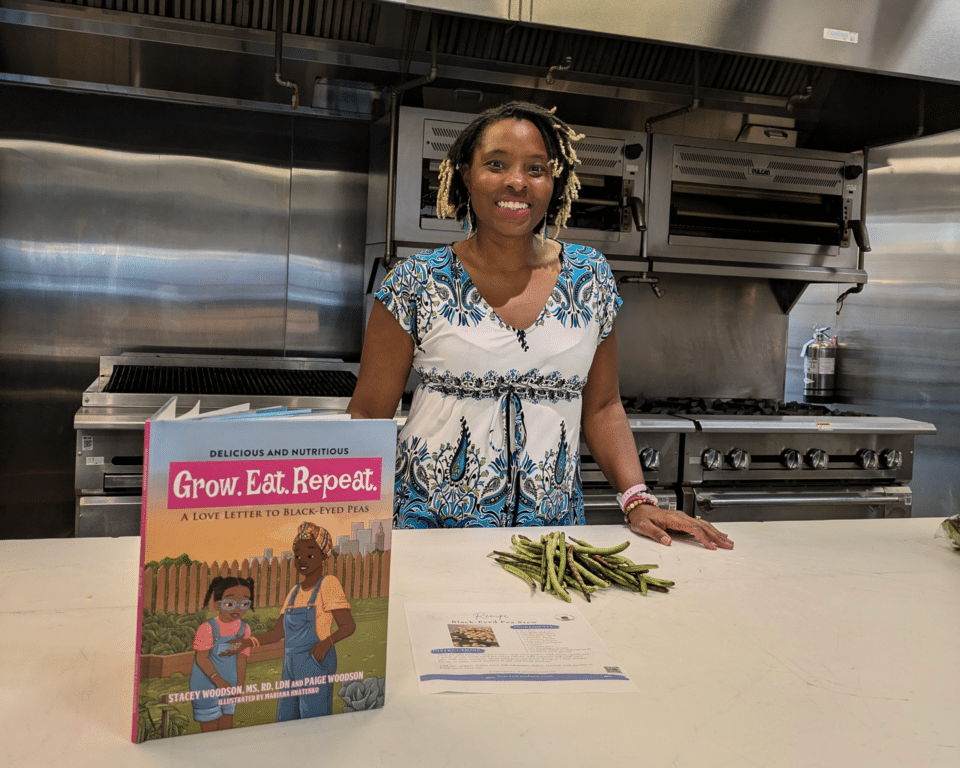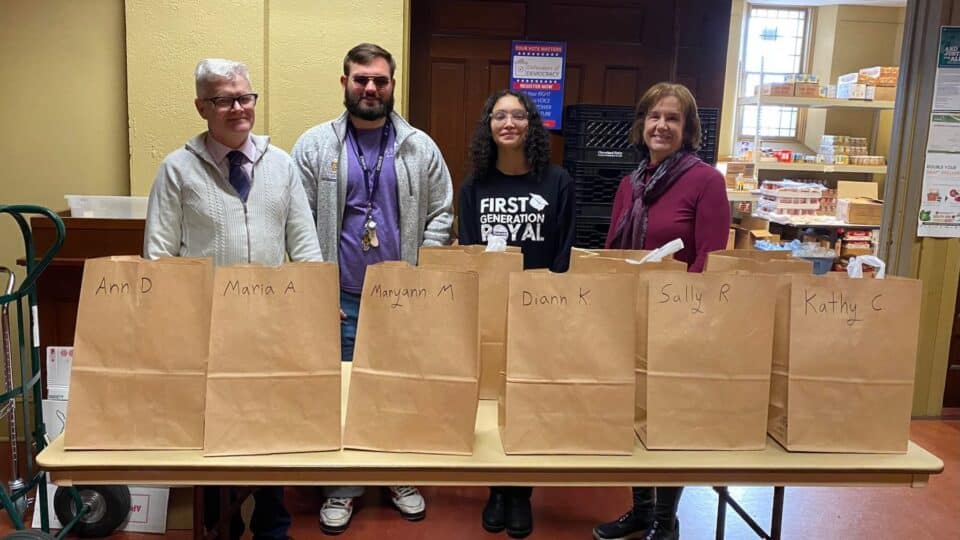In an ever-changing world, Grow Pittsburgh remains steadfast in its mission to help people grow their own food. It’s served as a training ground, launching pad and access point for countless farms and farmers over its 20 years in operation. Under the sharp leadership of Executive Director, Denele Hughson, the organization continues to expand food access through its agile and multifaceted programming throughout Allegheny County.
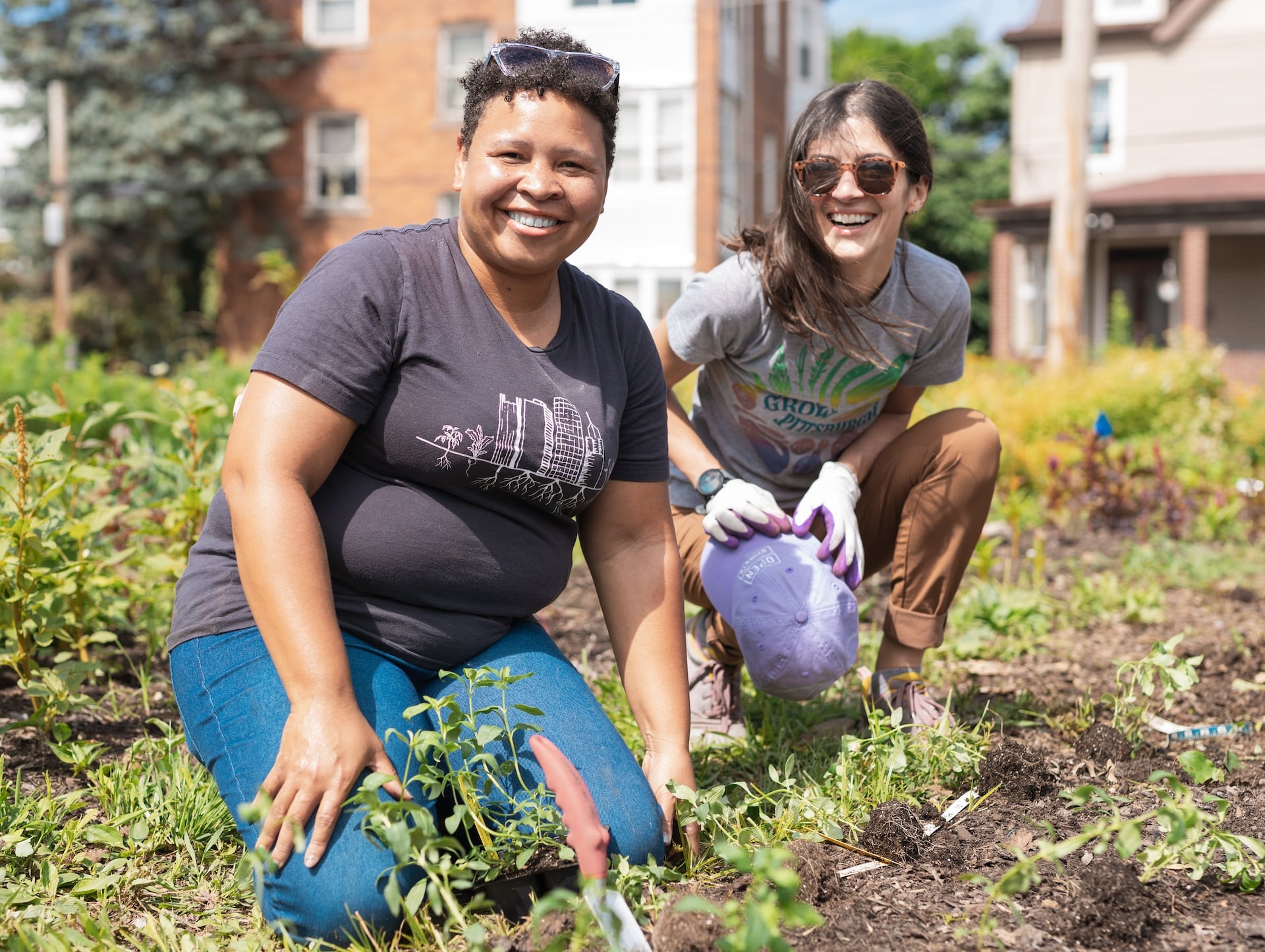
Denele Hughson, Executive Director and Ann Marie Toccket, former board member
Grow Pittsburgh acts as the nucleus of a rich and diverse network of community and school gardens, urban farms and backyard growers, many of which got their start through Grow Pittsburgh’s training programs. The organization also runs consumer-facing outlets, growing food at its four farm sites and selling that fresh produce directly to neighbors.
The Mission
Food access is central to the mission of Grow Pittsburgh, and one that Hughson is personally passionate about. By teaching people to grow fruits, herbs and vegetables, providing resources and connecting neighbors, Hughson says “we can create community to be able to be more sustainable and to survive by growing our own food, together.”
Why grow food? Grow Pittsburgh outlines its values, which include:
- Food Security & Sovereignty: Approximately one in five Pittsburghers faces food insecurity. Most of the gardens Grow Pittsburgh supports are in low-income neighborhoods, where there fresh produce is scarce. Families who grow at home or in community gardens can offset 30-40% of their produce needs with their own gardens. Additionally, many of the community gardens in Allegheny County supply food pantries.
- Nutrition Access: Schoolchildren and community gardeners report increased consumption of vegetables and decreased consumption of sweets as a result of growing their own food, contributing to concentration, energy and wellness. Access to affordable produce creates an alternative to overly processed fast foods.
- Individual and Collective Empowerment: Community gardens allow gardeners to enact change and create meaningful impact within and around their community. Gardens allow people to build social capital and community while sharing resources and bonding.
- Environmental Health: Gardens not only preserve and beautify vacant land, but also foster pollinator habitats, capture stormwater, reduce heat island effect, divert waste from landfills and provide demonstration spaces to model and teach sustainable practices.
- Cultivating Joy: Gardens provide emotional and mental benefits like reduced anxiety and increased wellness and agency.
- Sense of Place: Community gardens offer a beautiful venue for gathering and connecting people of diverse backgrounds over shared interests, particularly in neighborhoods with few or unsafe parks.
- Saves Money: A well-managed garden can yield 1.5 pounds of produce per square foot, equalling thousands of dollars worth of otherwise expensive crops, like tomatoes and herbs.
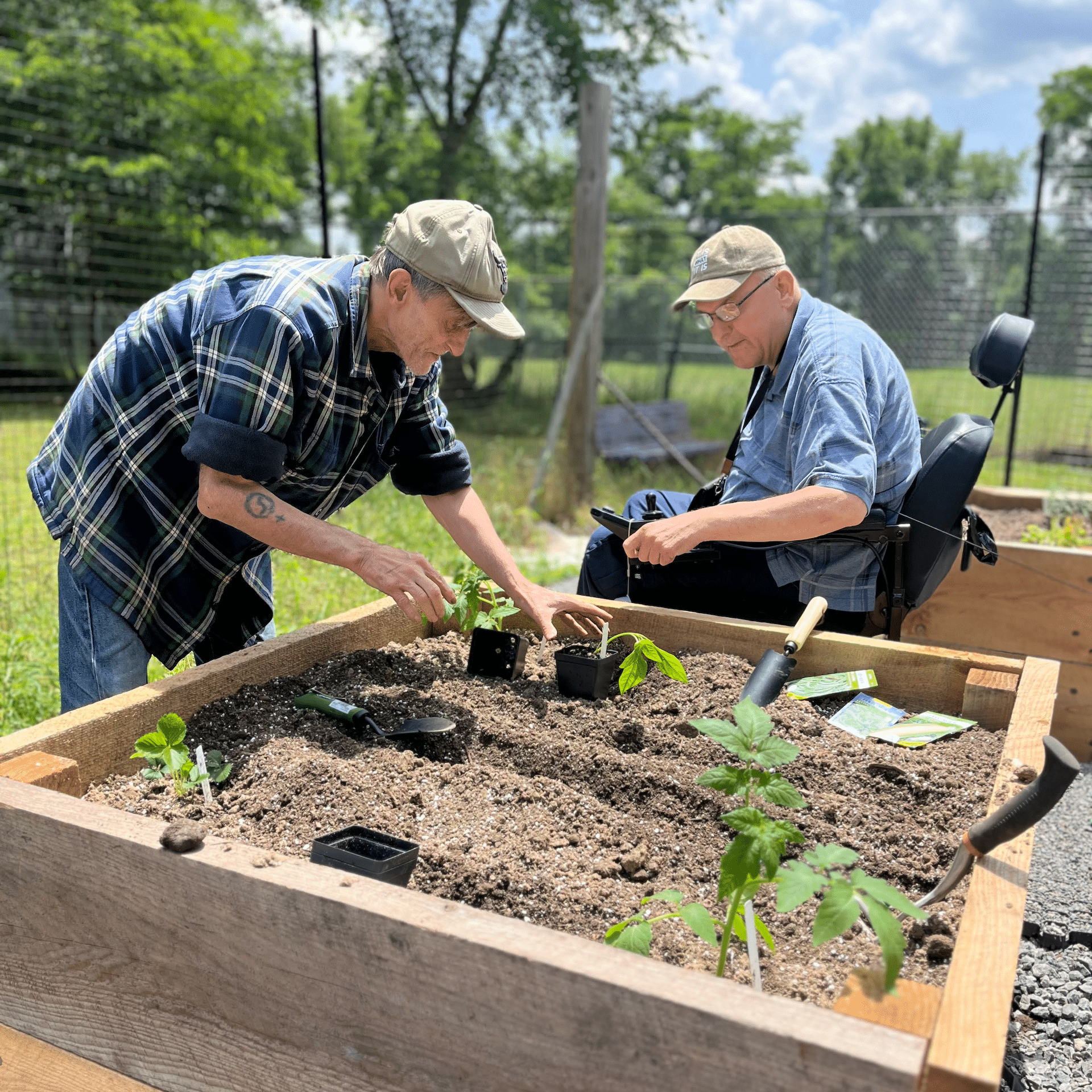
Growing Growers
Grow Pittsburgh offers agricultural education and resources for every level of grower, with the goal of independence for affiliated farms and gardens.
The first step for many in the Grow Pittsburgh funnel is the How to Start a Community Garden workshop, required before application to more intensive training. “We help people understand what they need, in order to get to the point of application,” says Hughson.
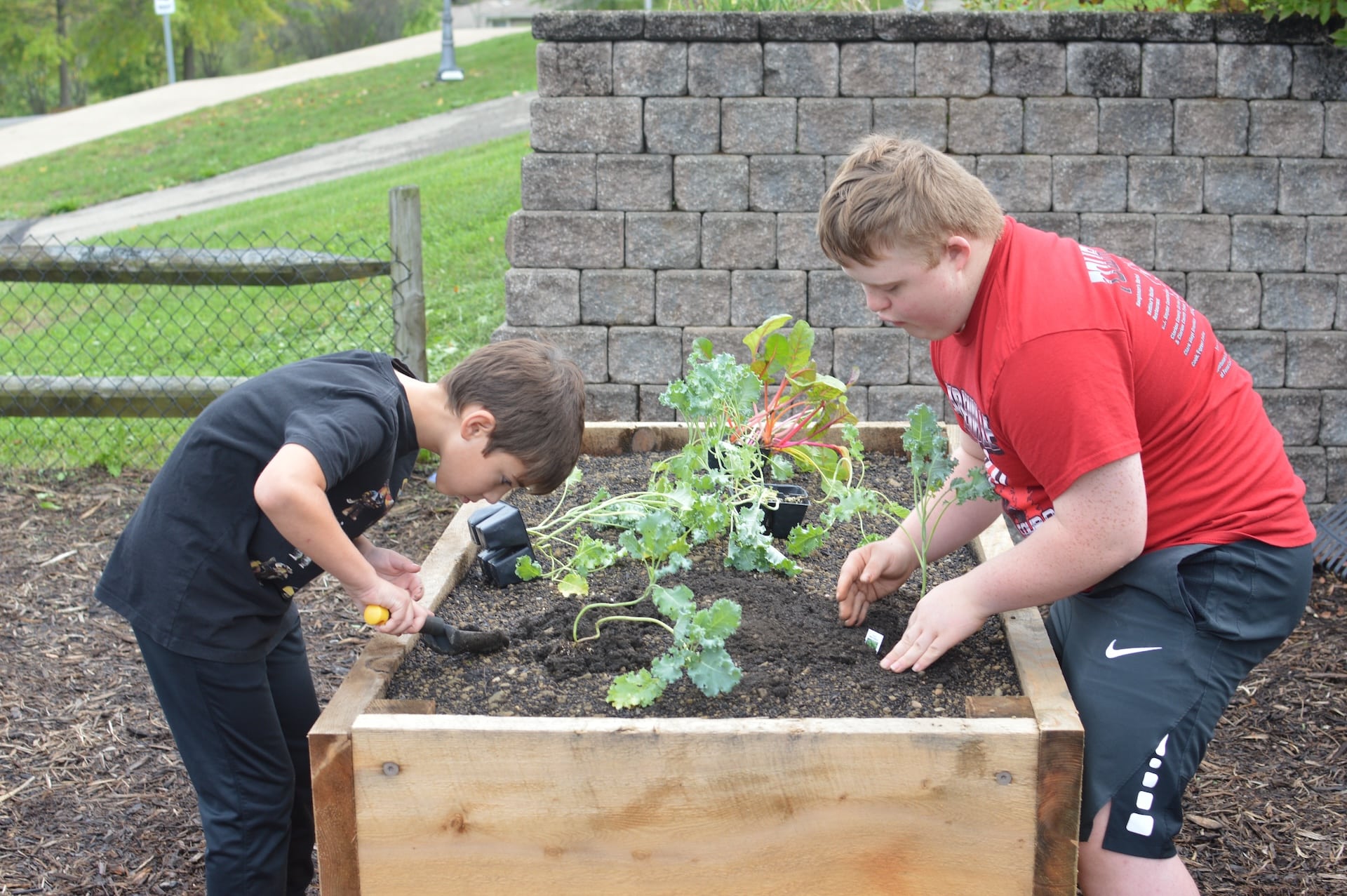
The workshop focuses on principles like organizing, people power building and community engagement before touching on logistics, like designing, building and techniques for growing. It also connects attendees with other local growers through a community garden visit.
Once a community or school entity has established a core team committed growers, a local sponsor and a potential site, it can apply to the New Garden Program, a two-year start-up training. Grow Pittsburgh has graduated over 50 community gardens and supports over 120, and has started over 70 school gardens at early childhood centers through K-12 schools across Allegheny County.
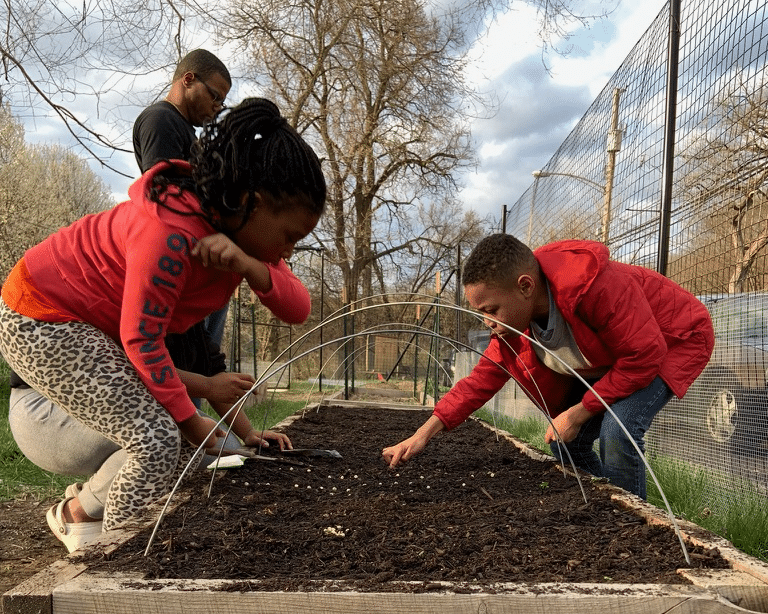
“We continue to support and define what urban agriculture can look like in this region,” says Hughson. “We help with the outreach, building and giving you knowledge and know-how for growing food, but that is your garden at the end of the day. We make sure there’s a group there who’s passionate about growing food and that it suits that community’s needs. We’ve seen everything from allotment gardens where you get your 5×4-foot plot to market pantry gardens that are growing food to give to a pantry, and those growing food to support their communities. We want to make sure that we’re there as a resource to support all of the growing needs.”
Grow Pittsburgh also helps individuals get their farming footing with a pre-apprenticeship program in partnership with Pasa Sustainable Agriculture, which engages beginning farmers through farm tasks and workshops. This can lead to further opportunities through Grow Pittsburgh’s urban farm apprenticeship and internship programs.
Hughson says, “We want to introduce people to the idea that agriculture is not just the growing of row crops. It can mean other things and, through food, we’re able to introduce people to that.” Through its Urban Farmers In Training program, Grow Pittsburgh provides local high schoolers with a summer job growing food while they gain other skills, like time management, financial literacy and food literacy. They get to tour PNC Park and learn about groundskeeping, lawn maintenance and turf management, fields that may be brand new to them. One former trainees went on to start a flower farm. “That’s agriculture,” says Hughson. “It helps the environment, but it’s also an opportunity to make money to sustain his family.”
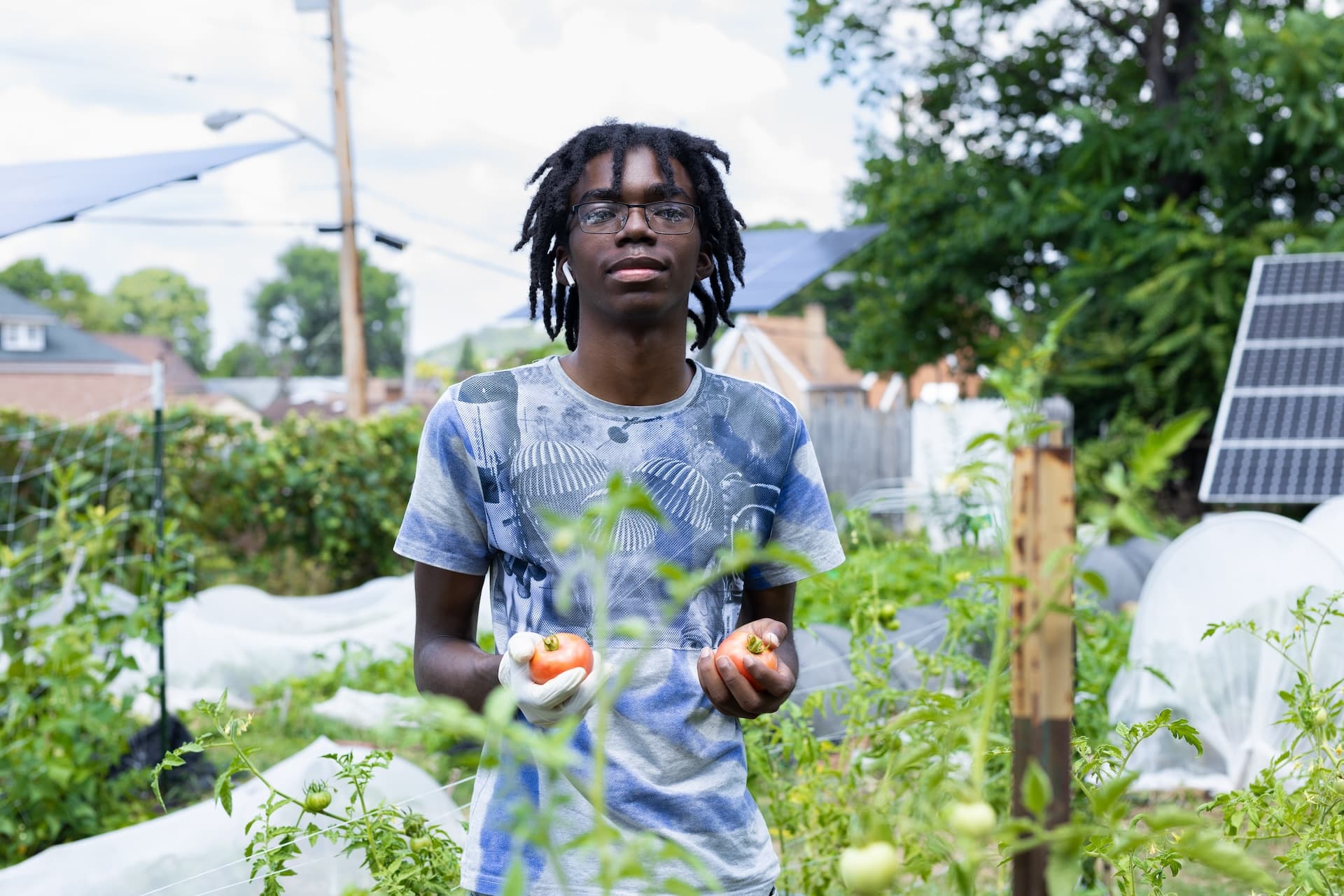
Urban Farmer in Training youth participant
The Grow Pittsburgh community composter school is another transformative program, turning existing community gardens into satellite drop spots for composting. “Every year, we have a cohort of up to 10 gardens. They learn the entire system of composting from construction and maintenance to how to actually apply compost. It includes six classes, four or five site visits and 40 hours of volunteer work. It’s really exciting to be able to do some localized composting on a larger scale. Pittsburgh doesn’t have municipal composting, so to be able to do more composting in communities through the work we do is really an amazing start.”

Community Composter participants
For gardeners of any level in the community, Grow Pittsburgh also offers ample learning opportunities and resources throughout the year. Its robust calendar of about 80 annual workshops and events includes topics like planning an herbal tea garden, irrigation and fertilization, compost 101 and growing berries.
Growers can also utilize Grow Pittsburgh’s extensive free library of gardening techniques, tips and information and its garden resource center that includes a tool lending library. “Anyone in Allegheny County is welcome to join,” says Hughson. “For a small user-ship fee each year, you’re able to get all of your bulk materials like compost, topsoil and straw. We also have tools you need for gardening. One of my biggest pet peeves is when people say, ‘Everyone can garden because it’s so affordable.’ The start-up cost for growing your own food can be prohibitive for a lot of people, so we want to make sure that we’re providing resources and opportunities for people to be able to offset that starting cost.”
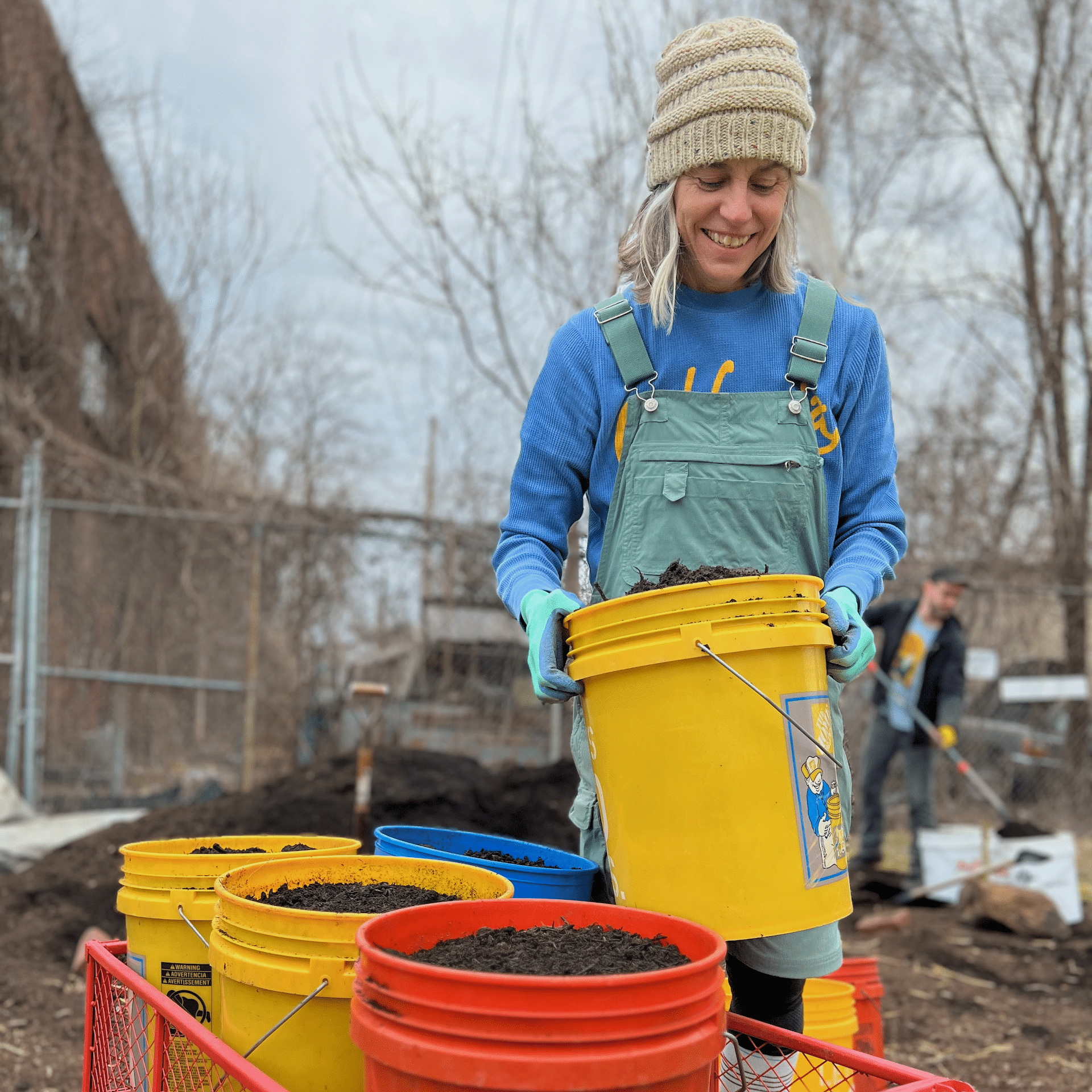
Garden Resource Center
Community gardens can also apply to the organization’s community garden sustainability fund, which helps with supplies, infrastructure and consultation. This fund has gone towards needs like fence extension and repairs, hand tools, row covers, mulch delivery and seedling orders.
“We’re always here as a resource,” says Hughson.
The Grow Pittsburgh Farm Sites
Beyond helping to launch and support developing gardens, Grow Pittsburgh grows food at its four four farm sites.
“Braddock Farms is our largest traditional farm site,” says Hughson. “Garden Dreams is our greenhouse in Wilkinsburg. Shiloh Farm is on a corner lot in North Point Breeze, showing what’s possible to grow on small acreage, especially if you’re at home and gardening, yourself. And we run a wing of the greenhouse at Frick Pittsburgh.”
These farms act as food sites, growing upwards of 35,000 pounds of food per year that’s sold directly back into the local community via farm stands that accept SNAP, Farmers Market Nutrition Program and Food Bucks.
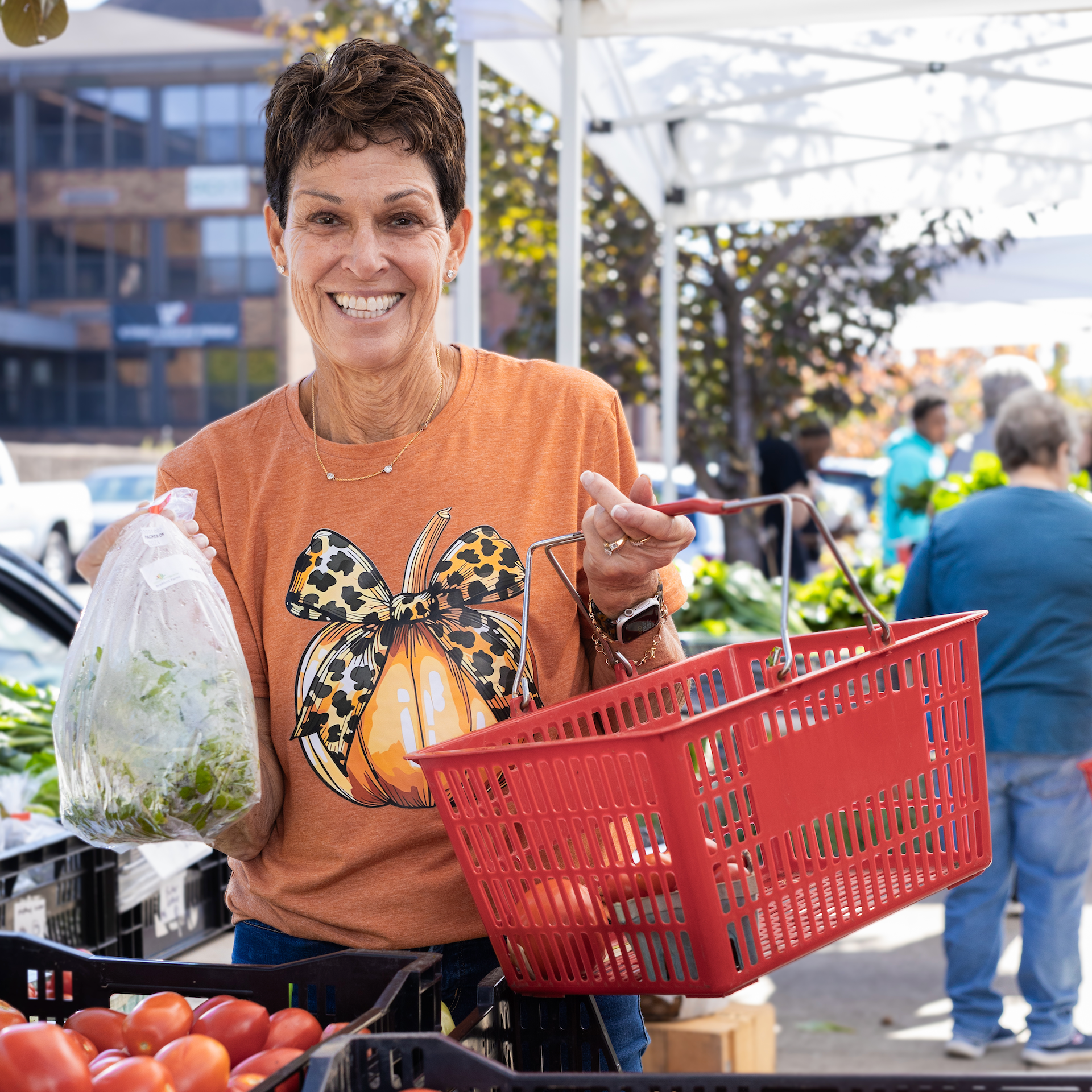
Farm stand shopper
Hughson says, “We sell the majority on site to the community. In Braddock, it is the only resource for fresh produce during the season. There’s a grocery store two-and-a-half miles up a long hill, but no other fresh food available.”
Grow Pittsburgh’s primary aim in setting up these farm sites was to be of service and value to the local communities. Hughson says, “We wanted to make sure that the community knew that we were a resource, that we were there to be available for food, and that we weren’t just some hobby farm selling to fancy restaurants. A really big focus of mine, with all our farms, was making sure people knew they were welcome on the site and showing them what is possible with urban farming and that there’s value in growing food. And, we wanted to make sure that we were driving education and providing open spaces where people felt welcome.”
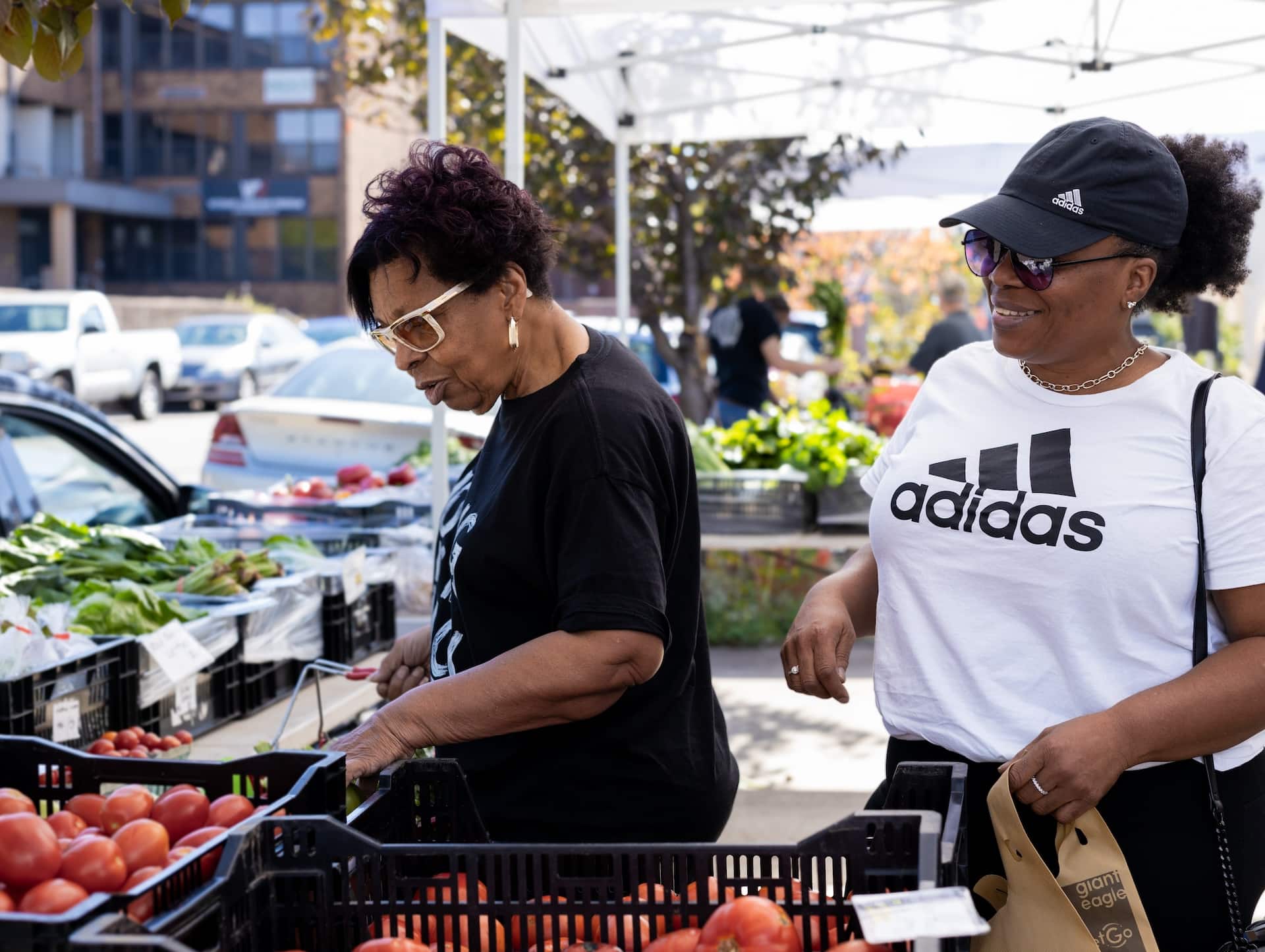
Farm stand shoppers
Grow Pittsburgh has also sought out places that don’t have tried markets to help establish small channels for the vendors and consumers there. “There are farmers markets across the city, but it’s hard to start new in an untried market. We were able to provide local, smaller farm stands, along with other urban growers, to make sure there’s fresh produce available in areas that Grow Pittsburgh supports and in our Black and Brown communities.”
Emblematic of its myriad programming, Grow Pittsburgh runs a seedling sale every spring from April through July. This sale, held at Garden Dreams, Braddock Farms, The Frick and East End Food Co-Op, invites the community to shop organic herbs, tomatoes, flowers and spring, summer and fall vegetable seedlings while connecting with regional growers and resources of the organization. Neighbors leave the events equipped to grow their own food with a wide and welcoming network behind them.
Amidst waves of federal funding cuts and legislative changes, Grow Pittsburgh draws strength from the deep roots it has established through diverse programming and investments in the community around it. Hughson says, “We are living in a time of uncertainty. Right now, I think all nonprofits, food growers and farmers are concerned. Our organization is 20 years old, so we’ve been able to weather storms, and we have very strong programming and supporters who appreciate the work that we do. Our work has always been important, and it remains apparent why we’ve had that staying power and can continue to do this work across all levels from our school programs where we’re teaching our littlest children how to grow and food through our community gardens and our urban farms.”
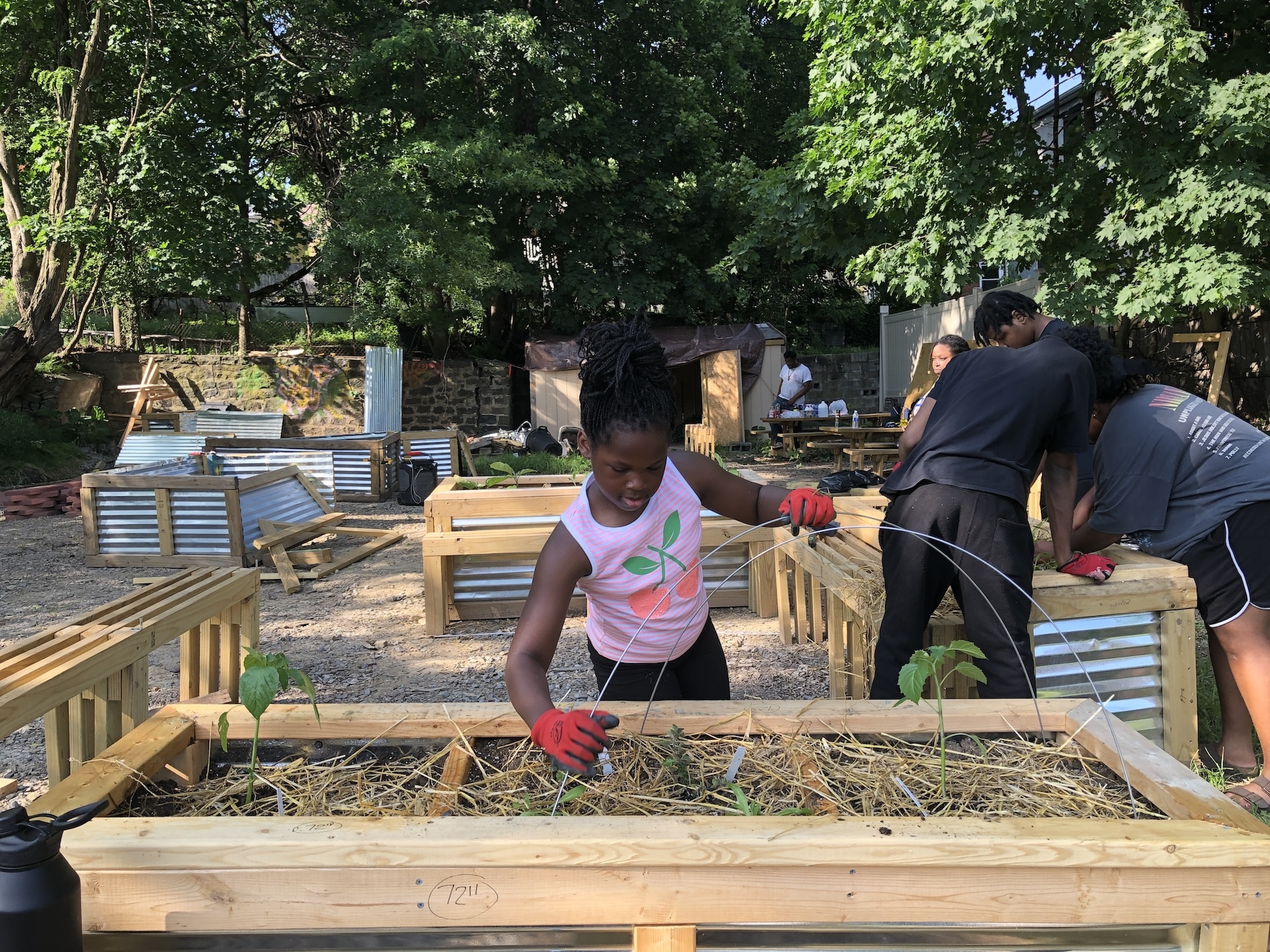
Visit the Grow Pittsburgh website to learn more about its programs and resources and stay in the loop on its Facebook and Instagram pages and through its newsletter. Follow Grow Pittsburgh on Eventbrite for updates on ongoing classes, workshops and events. 6587 Hamilton Ave. #2W, Pittsburgh; (412) 362-4769.
- Photos: Grow Pittsburgh
